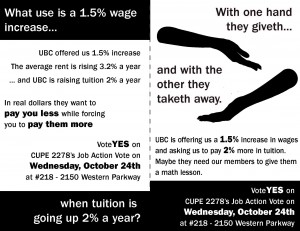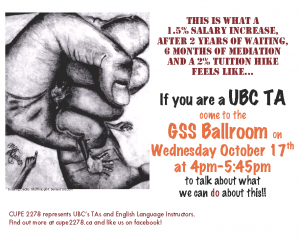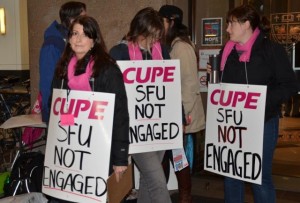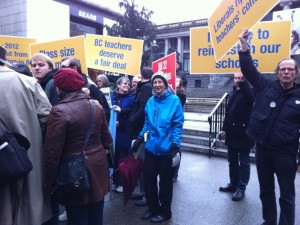The count is in and the Graduate Teaching Assistants in CUPE 2278 at the University of British Columbia, readily and predictably approved an escalation of job action to strike. The Union Executive advised:
Dear [CUPE 2278] members,
We conducted the vote yesterday, and the results: 76% were in favour of
taking job action.
Therefore, we will be booking out of the Labour Relation Board mediation, and we will serve the employer with a 72 hour job action notice when ‘booking out’ is confirmed.
Continue your normal duties until further notice.
Please stand by for more information, and keep checking the website,
facebook and twitter for updates.
In the meantime, the Faculty Association of UBC , which gave up its right to strike moons ago, advised its faculty members that it was preparing for a round of binding arbitration with the University.


 Follow
Follow

